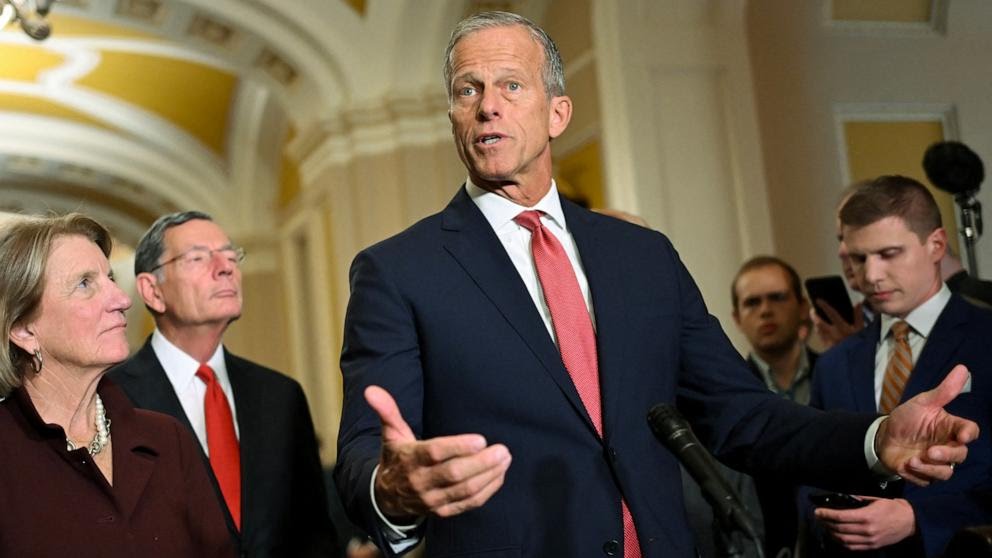During this presidential election, Americans voted for Donald Trump, who promised much change from the Biden administration. One of the biggest changes he has promised is to abolish the Department of Education. The department has many roles, including the disbursement of Title I funds to schools with a high amount of socio-economically disadvantaged students, collecting data on schools, overseeing accrediting agencies for setting up operational standards for educational institutions, running programs for higher education and financial aid, and helping students against discrimination. There would be many large impacts if the department were abolished.
Many have argued for the elimination of the department since its inception on the grounds of states’ rights and constitutionality. The Constitution never directly supports a federal role in education, which is why many Republicans are against it. They believe instead that the state government should have full control over their state’s education. These ideas have held true to the core of Republican beliefs since the creation of the department, with prominent Republicans like Ronald Reagan vowing to get rid of it, Newt Gingrich in 1994, Bob Dole in 1996, Rick Perry in 2011, and even Donald Trump in 2016.
The Department is clearly still here even though many Republicans, including presidents, have opposed it. The President can’t just get rid of the Department if they want to, they need congressional approval. While many Republicans support this, most Democrats do not support removing the department, so it would be difficult to get Congress to pass a bill doing so. However, Trump will be going into office with a majority in both the House of Representatives and the Senate, which creates an even greater likelihood of his agenda passing. It is not absolutely sure that all Republicans would vote for this due to the fact that many of these Republicans represent rural areas that rely the most on the department for Title I funding.
The Title I funds are meant to go to schools with the highest number of students in potential poverty. Currently, this means that rural areas with typically less income get the most Title I funds. However, if the Department were to be abolished, it is likely that Title I funding would be partially or even fully cut. This will likely lead to them being turned into block grants instead, and potentially harming education for those who rely on Title I funding in their schools.
Not just students at risk of poverty, but also students with special needs are at risk of being harmed if the department were to be abolished. About 12% of the funding used by schools for special education comes from federal IDEA funding. If the department were to be abolished, the money would come from block grants. This would greatly harm students with special needs because they would not have the oversight of the department to ensure the money is being spent on students with IEPs and 504 plans.
After high school, plans for higher education would be affected as well. While Pell Grants are unlikely to be affected, the new Republican congress may vote to slash funding for college access programs such as work-study, public loan forgiveness, and other programs. Initiatives like these have a high amount of money spent on them, with the department giving $125 billion in college student aid each year. A reduction of this funding would greatly increase colleges’ already high inaccessibility and harm students.
Fortunately, many important things either aren’t part of the department or could possibly be moved. The enforcement of civil rights would likely be moved to the Justice Department, although this would make it harder for parents to enforce anti-discrimination because the Justice Department also handles many other issues. Important federal early education preschool programs are likely to be mostly unaffected by the department’s abolition, such as Head Start and the Child Care Development Block Grant, because they are not part of the department. However, funding for other programs could be affected, such as Birth Through Five, Promise Neighborhoods, and Full Service Community Schools, which are partly funded by the department. Though the department collects data on lunch and nutrition, the free lunch program is run by the Department of Agriculture, so free lunch is still possible in states where it is enacted.
While it isn’t guaranteed, there is a much higher risk today than with past Republican administrations of the government actually going through with the Republican promise of abolishing the Department of Education. With a Republican majority in the House and Senate, a Republican president, and a Republican-appointed majority in the Supreme Court, during these next two years, they will likely be able to pass any agenda they want. Without the intervention of voters, the main option we have until midterms is to limit the harms made by their decisions, such as abolishing the Department of Education, through local and state governments. With little good to come from this decision, it is worrying that they have so much power to be able to do as they please, regardless of the harm it causes.







